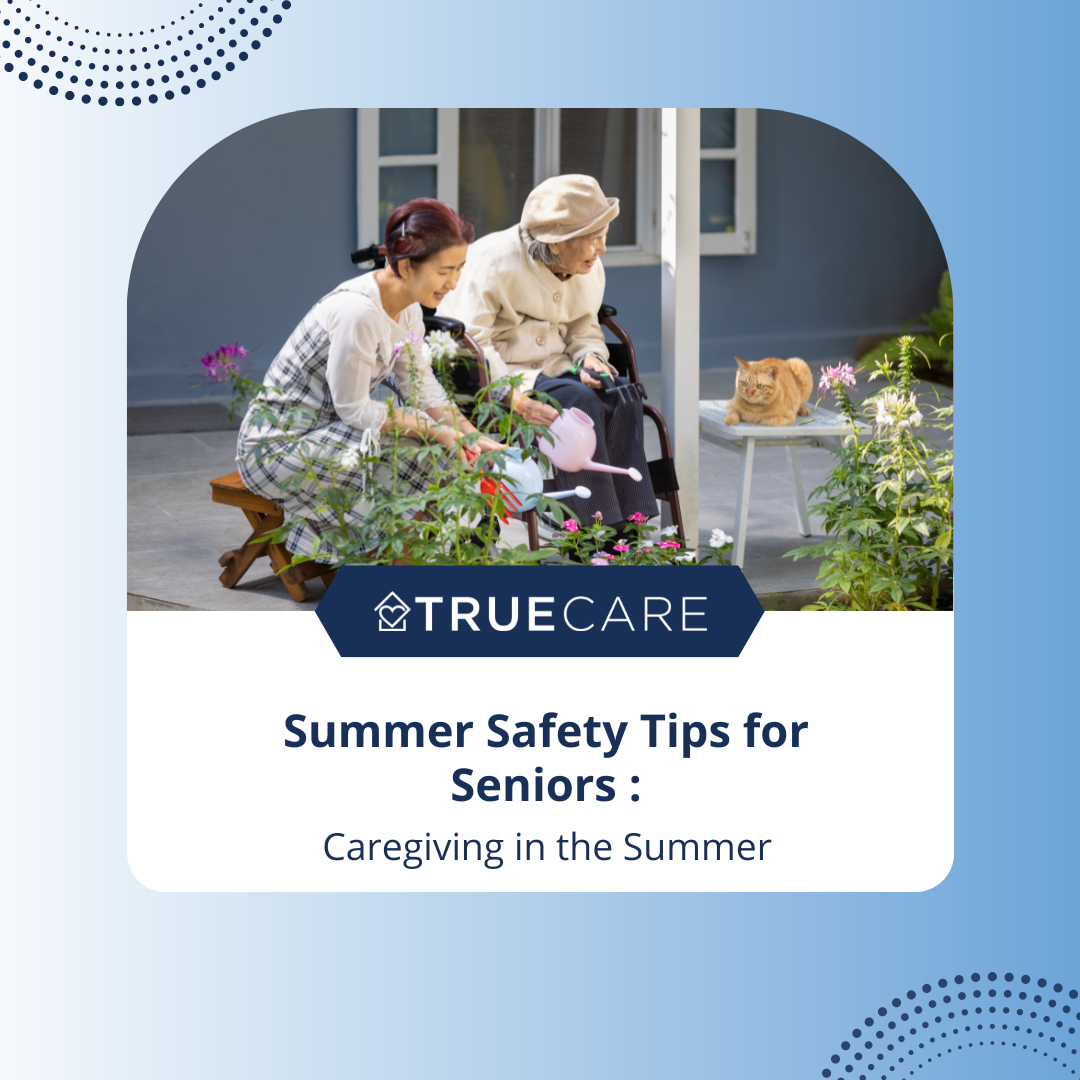As temperatures rise during the summer, it is important to take the proper precautions to prevent heat-related illnesses, including heat exhaustion and heat stroke. People aged 65 and older and individuals with pre-existing conditions are the most at risk in hot weather. As the season warms up, it’s important for family caregivers to prepare their seniors and themselves for the skyrocketing temperatures.
If you care for an elderly individual or someone with a health condition, follow these simple steps to help your loved ones be prepared for summer weather and stay safe when temperatures soar:
- Hydrate, Hydrate, Hydrate: Being proactive about keeping seniors hydrated is especially important. Dehydration in the elderly can quickly become a serious issue. When older adults become dehydrated, they may experience muscle cramps, disorientation, confusion, and many other threatening healthcare conditions.
If they are severely dehydrated, they may go into shock, which can be life-threatening. If your loved one is non-verbal, they may be unable to communicate feelings of thirst. Not only that but the issue is compounded by the fact that feelings of thirst decline with age. - Stay Out of the Sun: Prime sun hours are between the hours of 10am and 4pm. If your loved one needs to be outside during a heatwave, make sure activities are limited to early mornings and late afternoons/evenings when the sun's rays are less intense. Seniors should also always wear sunscreen, hats, and UVA/UVB blocking sunglasses and to help reduce potential damage to skin and eyes.
- Know the Signs of Heat Stroke: Understanding and watching for the signs of heatstroke can help you ensure that your loved one will get the care they need. Be sure to keep a list of emergency contact numbers handy in case a medical problem does arise. Signs of heatstroke that require prompt medical attention include:
- Dry skin
- Confusion
- Fatigue
- Headache
- Lethargy
- Rapid pulse
- Nausea
- Body temperature above 103 degrees Fahrenheit - Doublecheck Medications: Seniors often take many medications, some of which can have side effects caused by the sun. Be sure to review your loved one's medication and/or check-in with a member of his/her healthcare team if you have any questions. As medications can also have unexpected adverse interactions with each other, it's also important to have a physician regularly review your loved one's list of medications.
- Keep them cool: Stay inside as much as possible, preferably in an air-conditioned space. Even if you plan to stay indoors, help your loved one choose the appropriate clothing for summertime. Loose, lightweight natural fabrics are best to wear because they are less constricting and are breathable. Bring a jacket, light outerwear, or even a blanket in case they feel cold, especially in air-conditioned spaces. Also, make a note of their clothing inventory by switching out unseasonal heavy jackets and winter wear.
With a few simple steps, you can help your elderly loved one protect their health, while still enjoying summertime to the fullest. If you’re worried about older relatives or loved one’s with chronic conditions, True Care is happy to assist with any inquiries about summer safety and help explore any care options that can help give you peace of mind during this vulnerable season.




